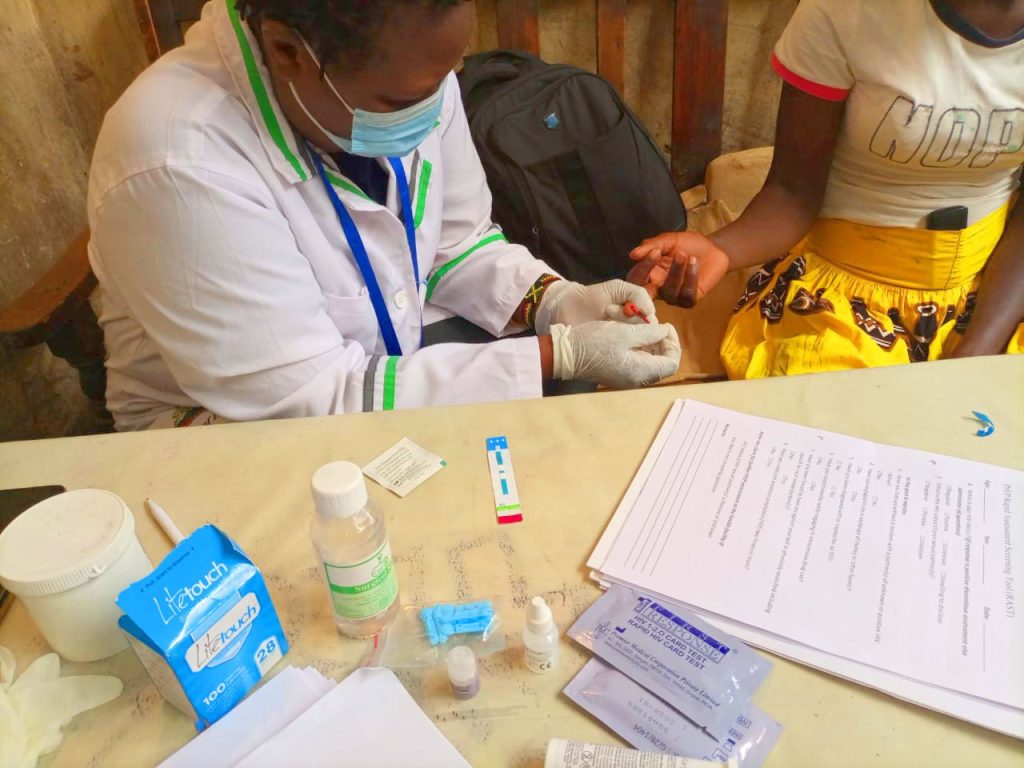For more than two decades, BHESP has been a pillar of hope, delivering lifesaving HIV services across Nairobi and other counties, reaching nearly 60,000 marginalized women, and ensuring access to essential prevention and treatment services. However, that lifeline is now under threat. The recent USAID stop-work order has forced BHESP to shut down two vital clinics—Mowlem and Roysambu—that were critical to the health and survival of over 15,000 women who relied on them. This disruption has left thousands without access to crucial services, including HIV testing, STI screening, family planning, PrEP, and psychosocial support.
Among the 15,000 women affected by the closures, 3,215 were receiving antiretroviral treatment (ART) and now face challenges in accessing their medication, which increases the risk of treatment failure and drug resistance. Peer-led condom distribution programs have also been halted, putting many at greater risk of HIV and other sexually transmitted infections due to the lack of prevention supplies.
The progress made toward ending HIV by 2030 is now in jeopardy, as service disruptions increase the likelihood of new infections, treatment defaults, and declining health outcomes.
“I don’t know what to do,” says Amina, a 26-year-old woman on PrEP for the past year. “I have done everything to stay safe, but now the medication is gone. I feel abandoned.” Amina’s story reflects the experiences of thousands who have been suddenly cut off from essential HIV services.
The United States has played a crucial role in the global HIV response through PEPFAR (the U.S. President’s Emergency Plan for AIDS Relief), saving over 26 million lives since its creation in 2003. However, the recent decision to halt global health funding, including PEPFAR, has had dire consequences. This funding cut has affected both those needing care and those providing it.
“For many of our clients, a service provider is as important as the daily pill that keeps them alive,” explains Esther Wanjiru, a program officer at BHESP. “Without that support, many will stop taking their medication. Some will give up entirely. And we know what that means—more infections, more suffering, more deaths.”
This crisis is not limited to Nairobi or Kenya. Across the world, organizations reliant on PEPFAR funding are facing the same challenges. Many countries have had to scale down or shut down community health programs, causing essential services for people living with HIV to collapse.
In Kenya, the situation is growing increasingly dire. The Kenya Medical Supplies Authority (KEMSA) has already stopped providing medication, and with no alternative sources, thousands of women face an uncertain future. Many fear a return to the days when HIV treatment was out of reach for the most vulnerable.
“We are going backward,” says Peninah Mwangi , Executive Diretor at BHESP .”We fought so hard to get to where we are today. Now, it feels like everything is going downhill “
The need for action is urgent. Advocacy groups, health organizations, and affected communities are calling on the government and international stakeholders to intervene before it’s too late. Without a solution, the world could see a resurgence of HIV infections and deaths on a scale not seen in years.
For Amina and thousands like her, the question remains: What happens next? And who will step in to protect their right to health and dignity? The urgency of this crisis cannot be ignored. Without immediate intervention, thousands of women will lose access to the healthcare they depend on, putting their lives and the fight against HIV at risk.
While these closures are devastating, it is important to note that BHESP’s other facilities, such as those in Kimathi and Kariobangi, continue to operate through Global Fund support, and we encourage our beneficiaries to access lifesaving commodities and services there.
